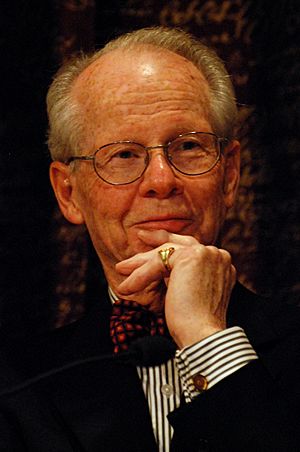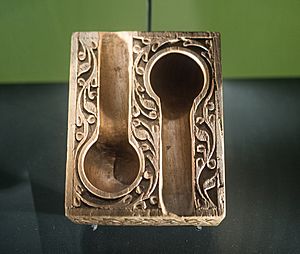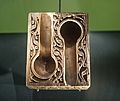Oliver E. Williamson facts for kids
Quick facts for kids
Oliver E. Williamson
|
|
|---|---|

Williamson in 2009
|
|
| Born |
Oliver Eaton Williamson
September 27, 1932 Superior, Wisconsin, U.S.
|
| Died | May 21, 2020 (aged 87) Berkeley, California, U.S.
|
| Nationality | American |
| Institution | University of California, Berkeley Yale University University of Pennsylvania |
| Field | Microeconomics |
| School or tradition |
New Institutional Economics |
| Alma mater | Carnegie Mellon, (PhD 1963) Stanford, (MBA 1960) MIT, (BSc 1955) |
| Influences | Kenneth Arrow Chester Barnard Ronald Coase Richard Cyert Friedrich Hayek Ian Roderick Macneil Herbert A. Simon John R. Commons |
| Awards | John von Neumann Award (1999) Nobel Memorial Prize in Economic Sciences (2009) |
| Information at IDEAS / RePEc | |
Oliver Eaton Williamson (born September 27, 1932 – died May 21, 2020) was an American economist. An economist studies how people and societies make choices about money, goods, and services. Williamson was a professor at the University of California, Berkeley. He won the 2009 Nobel Memorial Prize in Economic Sciences. He shared this important award with Elinor Ostrom.
Williamson's ideas about "transaction costs" and the "theory of the firm" were very important. These ideas helped people understand how businesses and organizations work. His work has greatly influenced the social sciences, which study human society.
Contents
Life and Education
Oliver Williamson was born in Superior, Wisconsin, on September 27, 1932. His parents, Sara Lucille Dunn and Scott Williamson, were both high school teachers. He attended Central High School in Superior.
He went to college at the MIT Sloan School of Management. In 1955, he earned his first degree, a BSc, in management. After college, he worked as an engineer for General Electric. He also worked for the Central Intelligence Agency (CIA).
Williamson continued his education. He earned his MBA from Stanford University in 1960. In 1963, he received his highest degree, a PhD, from Carnegie Mellon University. He studied under famous economists like Ronald Coase and Herbert A. Simon. He became an expert in something called "transaction cost economics."
Career and Teaching
From 1963 to 1965, Williamson was a professor at the University of California, Berkeley. He then taught at the University of Pennsylvania from 1965 to 1983. Later, he moved to Yale University, where he taught from 1983 to 1988. At Yale, he helped start an important academic magazine.
In 1988, he returned to the University of California, Berkeley. He held special professorships in business, economics, and law. He was known as the Edgar F. Kaiser Professor Emeritus at the Haas School of Business. In 1999, he also taught economics in Italy as a Fulbright Distinguished Chair.
Williamson was one of the most often quoted authors in the social sciences. This means many other researchers used his ideas in their own work. He passed away on May 21, 2020, in Berkeley, California.
Understanding His Economic Ideas
Oliver Williamson's work helped us understand how different ways of making decisions compare. He looked at how markets work versus how organizations manage things internally. His ideas were very important in the 1980s and 1990s. They helped explain the differences between public (government-run) and private (business-run) services.
Transaction Costs and Contracts
Williamson focused on the "costs of transactions." These are the costs involved in making a deal or agreement. He showed that these costs can be different depending on the situation. For example, buying something once is different from having a long-term agreement.
Imagine an electric company that needs coal. They could buy coal every day from different sellers. This is like "case-by-case bargaining." But over time, the company might decide to work with one specific coal supplier. This creates a "relationship-specific contract." Williamson argued that the costs and rules for these two types of deals are very different.
Information and Firms
Williamson also talked about "information impactedness." This happens when some people in a deal know more than others. For example, a seller might know more about a product's true quality than a buyer. This can make it hard to make fair deals.
He believed that businesses, or "firms," are more than just a bunch of contracts. They are special structures that help manage these information problems. Firms help solve conflicts and make sure deals happen smoothly. This is especially true when there's uncertainty or when people might try to take advantage of others.
Nobel Prize in Economics
In 2009, Oliver Williamson received the Nobel Memorial Prize in Economic Sciences. He shared the prize with Elinor Ostrom. The award was given for "his analysis of economic governance, especially the boundaries of the firm."
The Royal Swedish Academy of Sciences, which gives out the prize, explained his work simply. They said Williamson "developed a theory where business firms served as structures for conflict resolution." This means he showed how businesses help solve disagreements and make things work efficiently. The prize money was 10 million Swedish kronor, which was about $1.44 million at the time.
Personal Life
Oliver Williamson met his wife, Dolores Celini, in 1957. They were both living in Washington, D.C., at the time. They had five children together.
Awards and Honors
Besides the Nobel Prize, Oliver Williamson received many other important awards and honors. He was recognized by many academic groups for his important contributions to economics. Some of these include:
- The Sveriges Riksbank Prize in Economic Sciences in Memory of Alfred Nobel, 2009.
- Distinguished Fellow, American Economic Association, 2007.
- Member, National Academy of Sciences, 1994.
- Fellow, American Academy of Arts and Sciences, 1983.
- He also received many honorary doctorates from universities around the world.
Images for kids
See also
 In Spanish: Oliver E. Williamson para niños
In Spanish: Oliver E. Williamson para niños
 | Laphonza Butler |
 | Daisy Bates |
 | Elizabeth Piper Ensley |



